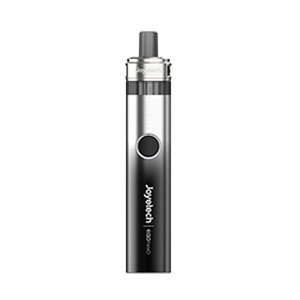Resolutions in the digital age
<div class="col-xs-12 col-sm-12 col-md-12 col-lg-12 div_news_02"><p> By Terri Coles</p> <p> TORONTO (Reuters) - That time of year is upon us again -- no, not the holiday season.<br /> The period immediately following, where the guilt -- and maybe a couple extra pounds -- from the holidays lead us to make New Year's resolutions.<br /> We're going to eat better, exercise more and quit some of those unhealthy habits we've been living with too long. The most popular healthy resolutions remain the same from year to year, but there are an increasing number of gadgets and Web applications to help us keep them -- or at least make us feel like we've got a fighting chance.</p> <p> 1. Make scientific research work in your favor<br /> A recent study from Brigham Young University found that New Year's resolutions -- or healthy changes made at any time of the year -- don't have to be short-term. Professor Ray Merrill found that participants in a four-week health education course had remained more active and kept up healthy dietary changes 18 months after the course ended.<br /> The participants were taking 800 more steps daily, and eating two-thirds a serving more vegetables, half a serving more fruits, 23 grams less fat and four grams more fiber per day than when they first enrolled in the course. The findings suggest that signing up for a health- or exercise-focused course may help healthy resolutions stick. They also show that it could be worthwhile for businesses and insurance companies to encourage similar wellness programs, Merrill said.<br /> <br /> 2. If you're going to play video games, at least sweat a little<br /> Nintendo's Wii was one of the hottest items of the last holiday season. A year after its release, the console is still tough to find, but options for getting some activity in while you play are increasing. The console already comes with Wii Sports, which includes simulated tennis and boxing games that led several bloggers to develop Wii Fitness plans. The upcoming release Wii Fit ups the ante with a balance board that measures your performance of exercises that include yoga and aerobics. A North American release is expected for early 2008, but it's already a hit in Japan. And Dance Dance Revolution is already on shelves for the holiday season, if you really want to send someone a strong hint. If you don't own a Wii, playing Rock Band or Guitar Hero III might count as exercise -- if you really get into it.<br /> <br /> <strong><font color="#ff0000">3. Smoking</font></strong><br /> Many smokers have to try to quit smoking several times before they manage to do it, but more than 45 million Americans have made it stick, according to the American Lung Association. Many smoking cessation gadgets have already entered the marketplace, <font color="#0000cc">but a new Chinese product brings another weapon to the battle -- the electronic cigarette</font>. The device is a battery-powered nicotine inhaler that adds the sensation of holding and inhaling a cigarette to the nicotine delivery used with other smoking cessation products like gums and inhalers.<br /> The device even goes so far as to emit "smoke" to keep things realistic. The cigarettes cost about $200 and are sold in China, Israel, Turkey and parts of Europe, and sales are strong so far.<br /> <br /> 4. Find a like-minded community online<br /> Revolution Health Network was founded in 2005 by American Online co-founder Steve Case, and the site launched in 2007. Case's mission is ambitious: to change health care by giving people tools to actively manage their medical history and information, and to communicate with others with similar concerns for support and knowledge. Later in 2007, Microsoft announced its online consumer health tool, HealthVault, offering personal medical records and tailored health searches.<br /> Partners include the Mayo Clinic, Johnson and Johnson and the American Heart Association. Google is also working on its own consumer health portal, expected to launch in early 2008. These sites give consumers new tools that allow them to be proactive about their health and become part of a community of people with similar conditions, but there are concerns about the ramifications of putting something usually thought of as very private -- medical history -- onto a very public forum.<br /> <br /> 5. Put it down for posterity<br /> If you really want those resolutions to stick, you could try writing them down. Of course, writing nowadays often means typing, and there are several Web sites that provide applications for keeping track of your progress on all the new habits you plan to start in January. Revolution Health has launched a Resolutions 2.0 campaign aiming to connect people with similar goals, letting them track each others' progress and provide encouragement and reminders.<br /> Experts are running groups for particular goals, to provide professional guidance towards healthy eating, exercising more and improving your sleep. If you want to think long-term, at Life Tango you can create a list of goals you want to accomplish in your lifetime, ticking them off as you get there and seeing what others hope to do. And the ever-popular Facebook offers several applications that will post daily health tips to your profile and lets you share your resolutions list with 200 of your closest "friends". Too bad it will also update them whenever you try to surreptitiously remove a promise to yourself that you've decided you can't keep.</p> </div>
MORE NEWS






























